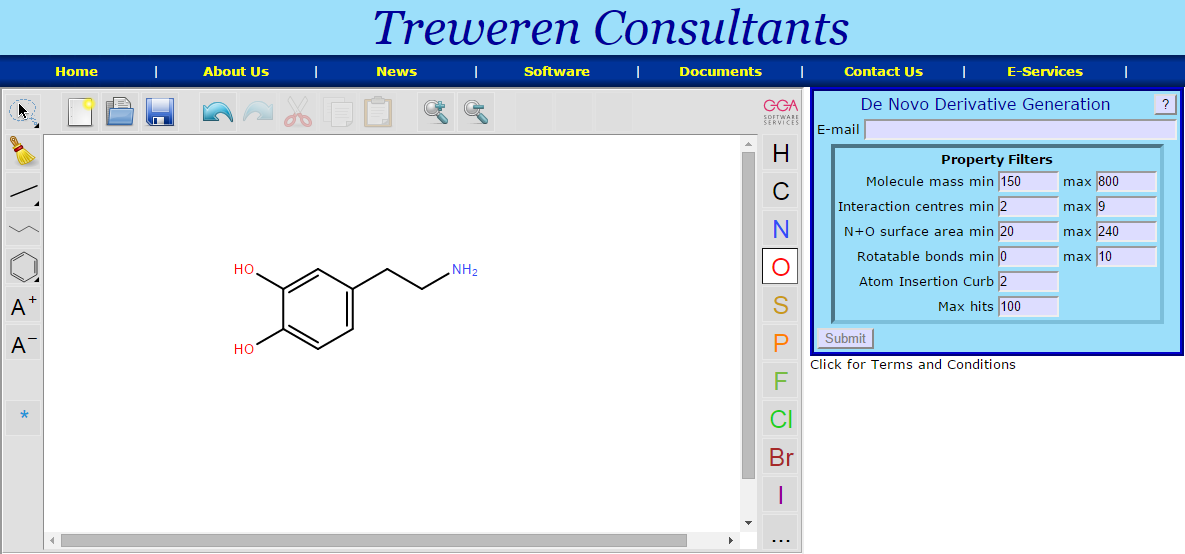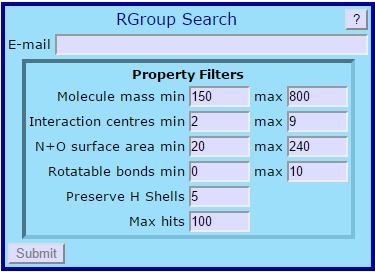E-Services
2016 sees an expansion of our online services from P450 inhibition profiles to include our popular De Novo derivative generator and our innovative Fragment Based Drug Design (FBDD) functionality. We have also made a subset of our similarity, substructure and docking capabilities accessible but limited the searches to an in-house collection of approximately 300,000 commercially available compounds used in the Find-a-Drug project. Such functionality is probably most useful for evaluation purposes.

The user specifies a protein PDB file or draws in a 2D molecule as appropriate (eg using the Ketcher 2D draw software), enters the desired options and submits the job. The underlying implementation is flexible using XML to define the parameters for the jobs which are executed on one of our servers. This toolbox approach allows customers to adapt our implementation to run on their in-house system if they so desired. The results are returned by E-mail with links to a HTML 5.0 SVG rendering of the molecules which can viewed in a standard web browser and a SMILES or SD file as appropriate.
R-Group Searching
Our THINK software has included R-group searching functionality for well over 10 years. This uses a reaction based definition for the prerequisite functionality groups which react to form the core of the library. For use with FBDD, we have developed an extended search capability to select R-groups with properties within a range and specifying how far into the R-group a substructures can start to be embedded. This approach we have found valuable when larger changes are necessary such as when growing a docked fragment.

R-Group searching is also available as part of E-Services, integrated with FBDD providing a means of growing the fragment at a specified connecting atom. In our implementation, we use approximately 12,500 R-groups generated for the Find-a-Drug project. The R-Group growth offers an alternative to using our De Novo derivative generator to grow the fragment.
THINK 2.10 released
The new release of THINK will be available shortly and includes the functionality to support web services and the enhanced R-group searching functionality. A number of smaller changes have also been made details of which are available elsewhere.